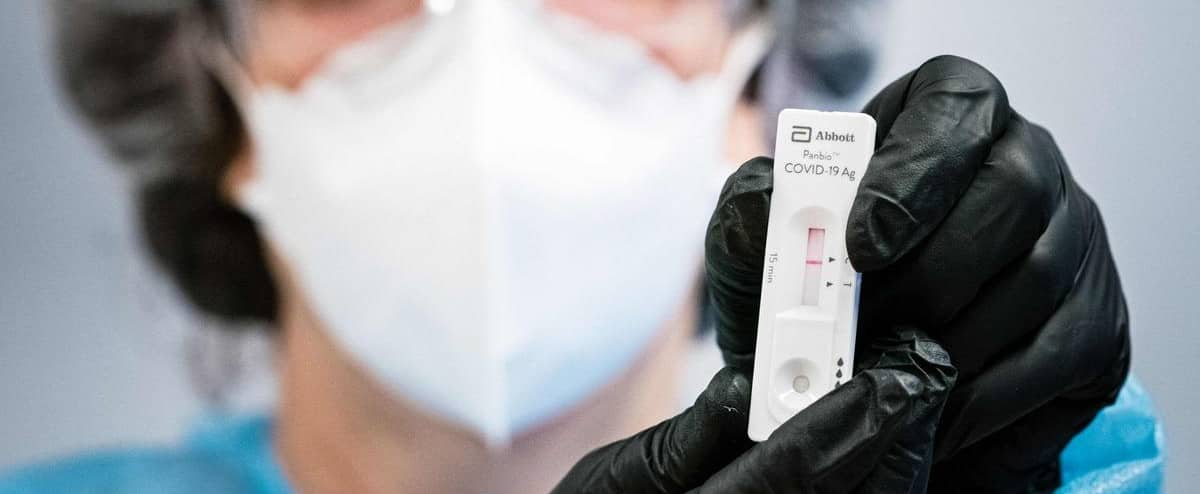Knowing if you are infected with the coronavirus a bit like taking a pregnancy test: even if they are less precise than standard tests, antigen tests are faster and easier to use, two important advantages in the fight against the epidemic.
• Read also: All the developments of the pandemic
These new tests can be particularly useful in two situations: when the current diagnostic tests (called RT-PCR) “are not available”, as for example in poor countries, and when there are “too long delays of ”. obtaining results, ”says the WHO (World Health Organization) in a report dated September 11.
Appropriately used, they “could be of a valuable contribution”, especially in isolated areas or to curb the COVID-19 epidemic in places where the circulation of the virus is particularly strong, underlines the WHO.
An antigen test is the size and shape of a credit card. It is accompanied by a swab (sort of long cotton swab) for the sample and a reagent liquid that is poured into a notch on the card, where the sample is then placed.
Like RT-PCR tests, the sample is taken from the nostrils (nasopharyngeal), or even the throat (oropharyngeal).
But unlike RT-PCRs, antigen tests do not require laboratory analysis because their mechanism is simpler. The former detect the genetic material of the coronavirus, while the latter identify virus proteins.
It is therefore at the stage of rendering the result, and not of the sample, that antigenic tests save time, even if they also require the intervention of a professional: the verdict is available in “10 at 30 minutes ”according to the WHO, against several days for RT-PCRs.
This speed partly compensates for the fact that antigenic tests are less precise than RT-PCRs. Because even ultra-precise, a test delivered too late is useless since the key to controlling the epidemic is to identify and then isolate a positive case as soon as possible.
It is with this pitfall that many countries, such as France or the United Kingdom, come up against the excessive demand for RT-PCR tests saturating laboratories and extending delays.
“A case detected more quickly will make it possible to take measures to reduce the risk of infecting other people”, hopes the president of the French High Authority of Health, Prof. Dominique Le Guludec, who recently gave the green light to antigenic tests .
However, their reliability varies from model to model. The WHO has therefore set minimum performance thresholds for them to be used: 80% sensitivity, i.e. the proportion of positive tests when people have the disease, and 97% (or even 99 % “Ideally”) specificity, that is, the proportion of negative tests when people are not infected.
The first indicator aims to avoid missing infected people, and the second to ensure that positive cases are indeed cases of COVID-19 and not other viral diseases (influenza, for example).
In addition, antigenic tests lose their effectiveness as the infection progresses.
Their performance “is better when the person is tested at the early stage of infection, when the viral load is usually higher,” report the Centers for Disease Prevention and Control (CDC).
For the WHO, antigenic tests should be done “within the first 5-7 days of the onset of symptoms” for their “performance to be optimal”.
 Canada Live NEWS – 24/7 Breaking Headlines & Updates Canada Live News is one of the largest news curating sites across Canada which is made exclusively for Canadian people.
Canada Live NEWS – 24/7 Breaking Headlines & Updates Canada Live News is one of the largest news curating sites across Canada which is made exclusively for Canadian people.
